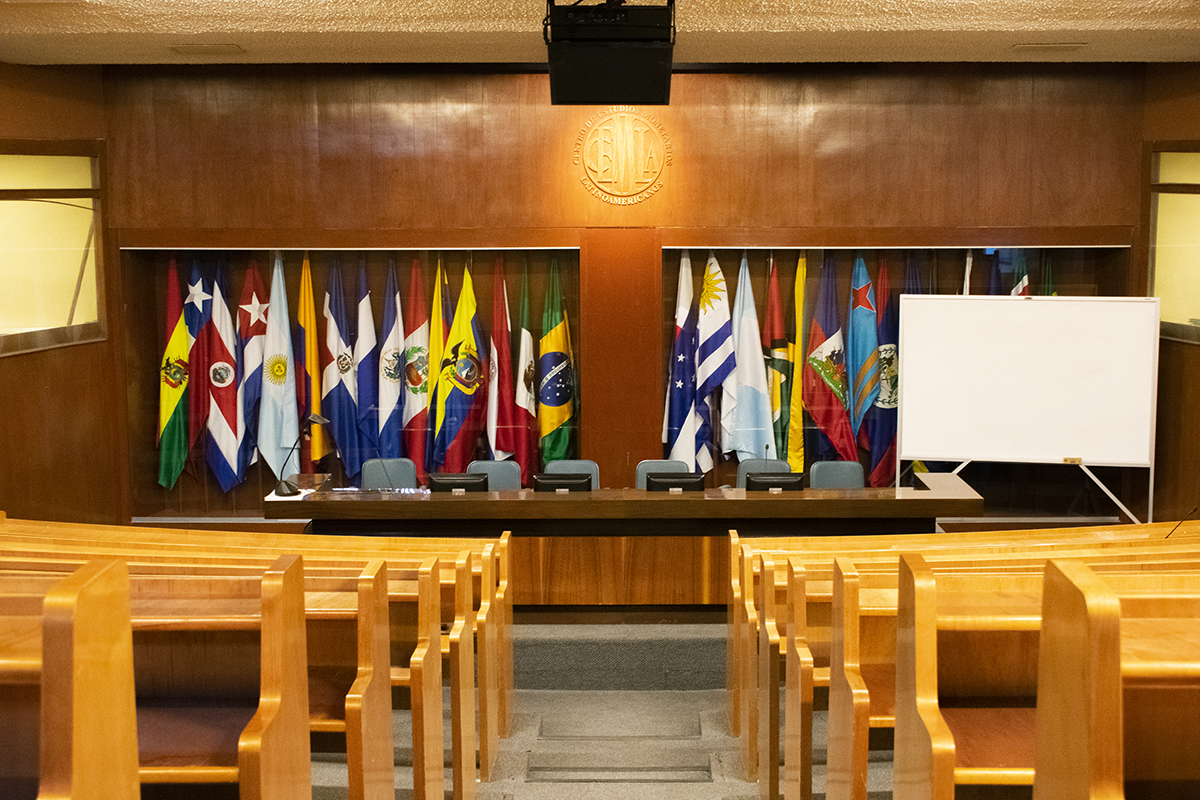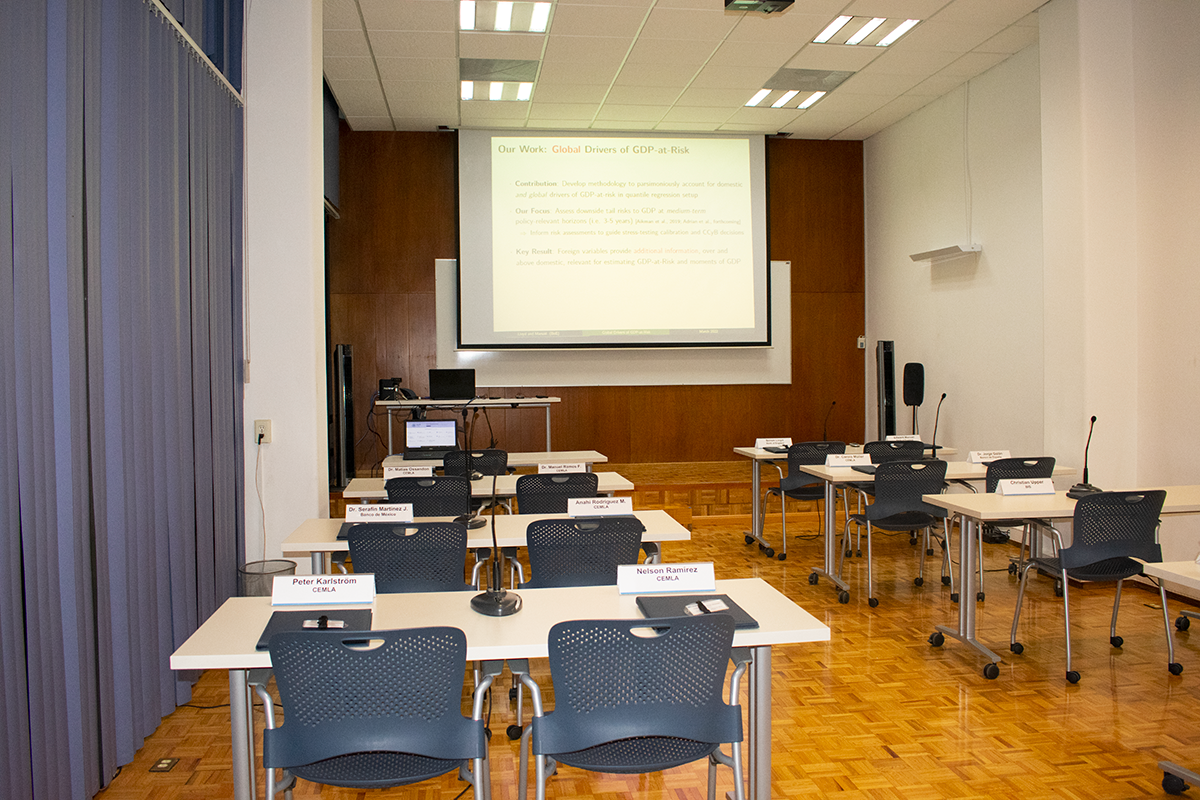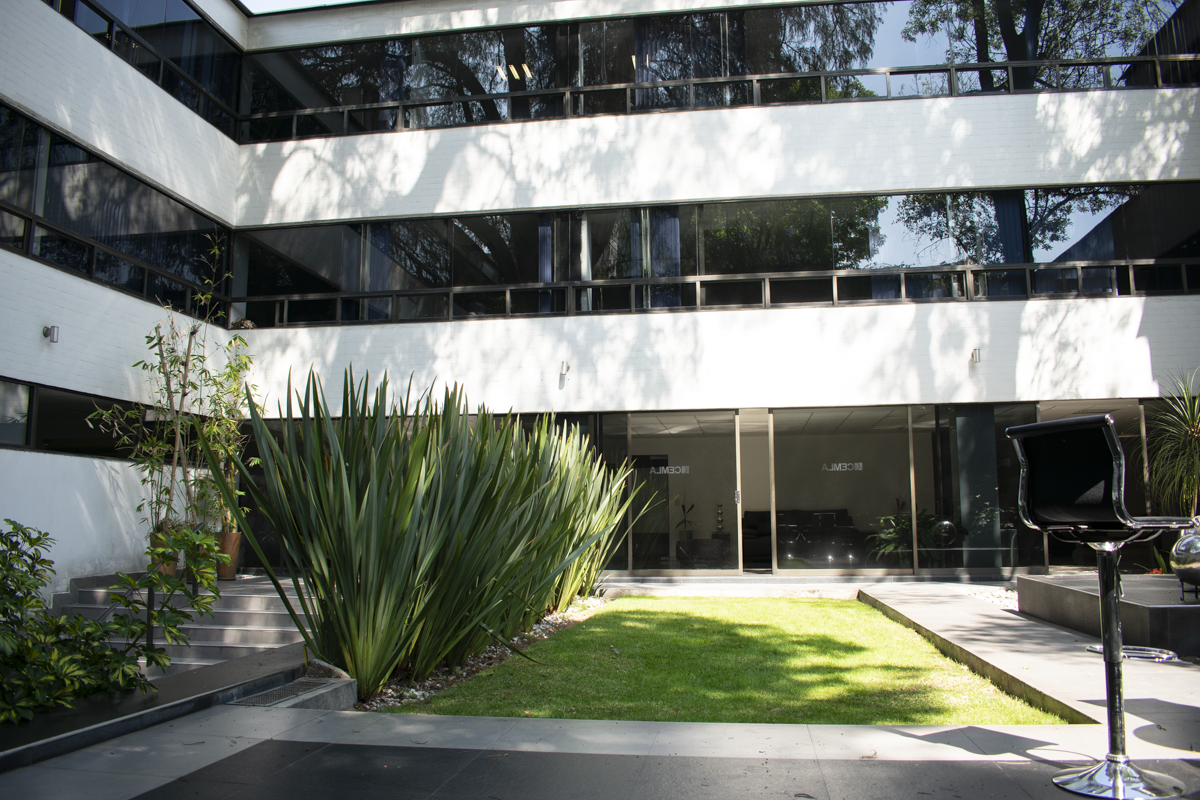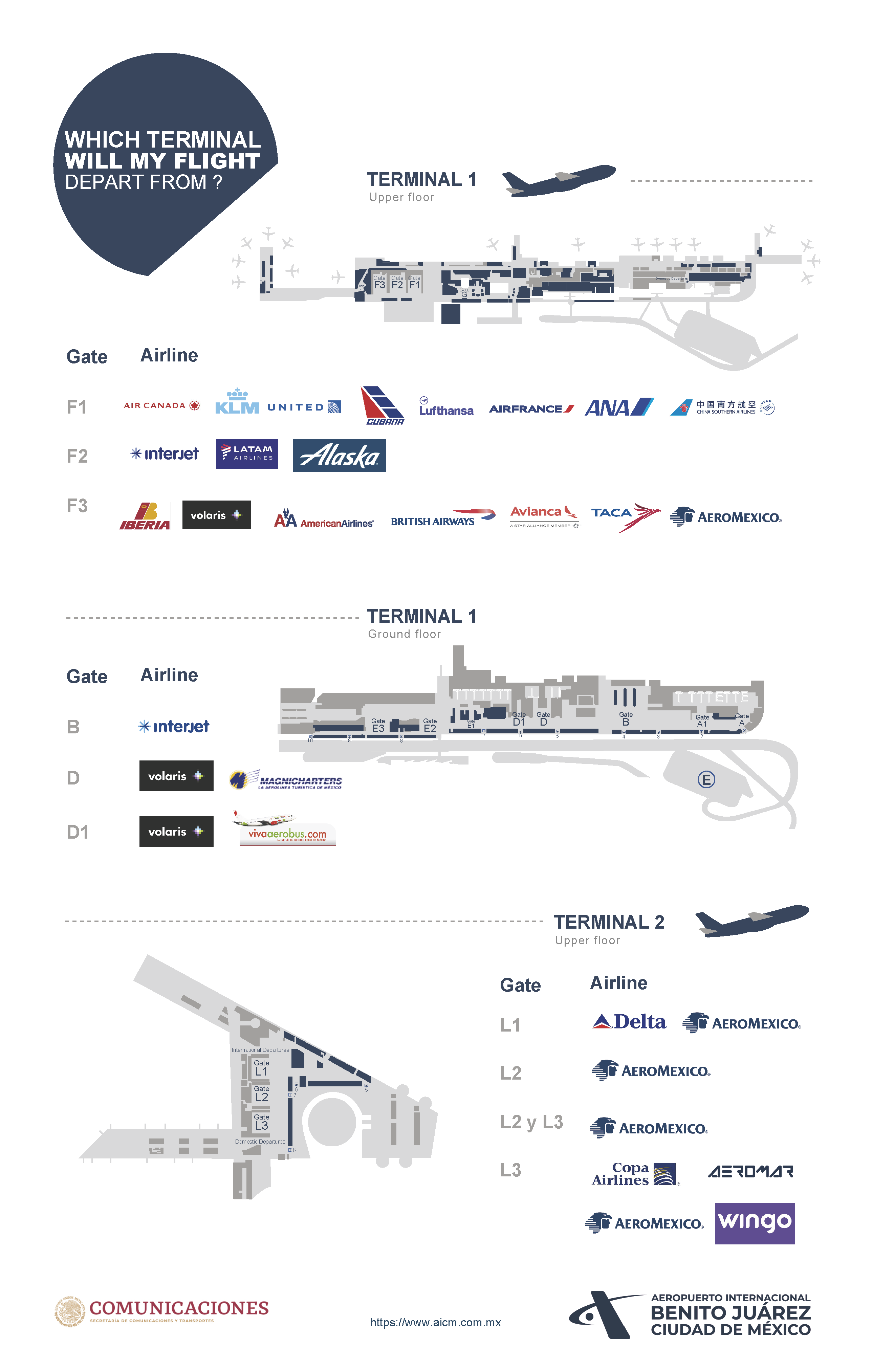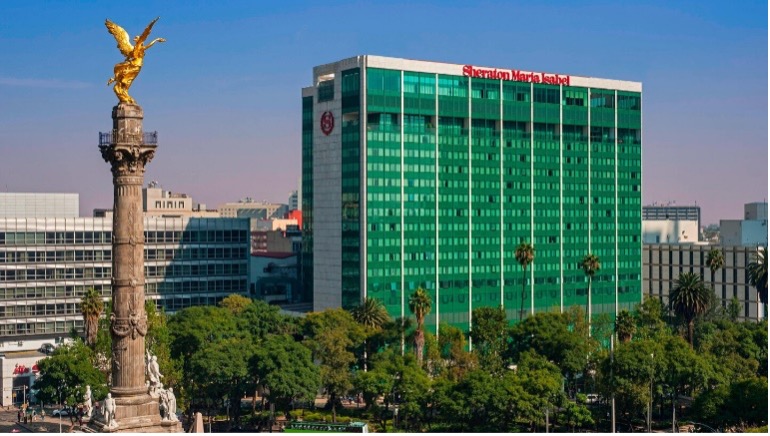

2024 CEMLA Joint Research Program
CEMLA Workshop on The Macroeconomics of Inflation in the Post-Covid-19 Era
During August 15-16, 2024, CEMLA organized “The Workshop on The Macroeconomics of Inflation in the Post-Covid-19 Era” as part of the 2024 Joint Research Program. Researchers from the Banco Central de la República Argentina, Banco Central de Honduras, Banco de México, Bangko Sentral ng Pilipinas, and Banco Central del Uruguay participated in the CEMLA Workshop, presenting their projects. The goal of this Program is for authors to improve on their work under the supervision of both, two expert advisors, Daniel Chiquiar (ITAM) and Javier García-Cicco (Universidad de San Andrés), as well as of CEMLA senior economists.
The seven Workshop presentations were: (1) Forecasting inflation using text-augmented Bayesian VARs; (2) The transmission of cost shocks to firms' expectations; (3) Comparison of survey and market inflation expectations at different horizons; (4) Second-round effects and asymmetry in oil and food price shocks to inflation; (5) Are shopping carts getting bigger? Shrinkflation at works; (6) Inflation targeting resilience: a DID analysis of the COVID-19 pandemic and the Ukraine conflict; and (7) Understanding inflation dynamics amid the global and idiosyncratic factors through the lenses of an (S)VAR model.

2024 CEMLA Joint Research Program
CEMLA Workshop on The Macroeconomics of Inflation in the Post-Covid-19 Era
CALL FOR RESEARCH PROJECTS AND PROPOSALS
August 15-16, 2024 – Mexico City (digital)
Recent developments in inflation in the U.S. and worldwide are positing exciting and ineludible research questions.
Sizable fiscal stimulus in response to the COVID-19 pandemic, compounded by monetary policy changes undertaken well before 2020 (quantitative easing in major advanced economies), were all anticipating an uncontainable process of inflationary pressures. Supply chains wrecked by the pandemic and the shortage of grains, fertilizers, and natural gas in the context of the Russian-Ukraine conflict in early 2022 only aggravated the inflation crisis by derailing inflation expectations, affecting the world differently, depending on the level of development (food inflation in emerging economies), strong energy dependence (natural gas in Europe), and working of labor markets (robust wage rates and low unemployment in the U.S.).
Put bluntly, in nearly two years, U.S. central bankers and researchers alike have passed from a state of worry to a one of relief. While traditional macroeconomic models would have suggested a hard landing by bringing inflation down at the cost of output losses and high unemployment, a posteriori, inflation seems to be converging to levels consistent with targets, though not yet decidedly, with traditional measures of slack signaling anything but a recession.
The state and functioning of labor markets may prove key to understanding the so-called immaculate disinflation. The COVID-19 pandemic has constituted itself a transformative event by shaking the foundations or structural patterns of labor markets and the macroeconomy. Flexible work arrangements, the acceleration in the adoption of automation processes, and green technologies, all altering the composition of the labor force, could ultimately lead to higher productivity and, therefore, challenge, from a measurement perspective, the distinction between the long and the short of the macroeconomy.
Certainly, the panorama of inflation and the role of central banking amidst the recurrence of supply shocks and demand shocks stemming from labor markets differs across countries and regions. Therefore, this Call for Research Projects and Proposals, as part of the 2024 CEMLA Joint Research Program, aims to further our understanding of recent developments in inflation from a global and local perspective, enriching the lessons that can be drawn from heterogeneous experiences and policy tools deployed in the aftermath of the pandemic.
Throughout the 2024 CEMLA Joint Research Program, prospective participants will receive one-on-one feedback from two academic advisors during the advisory meetings and will present their papers in the CEMLA Workshop. Participants are expected to complete their manuscripts for submission to the Latin American Journal of Central Banking (LAJCB) by December 20, 2024.
Guidelines
Near-to-final manuscripts and extended abstracts are welcome. Short abstracts are also invited, but preference will be given to clearly structured proposals around well-developed ideas.
Two invited advisors will be available to guide the research projects. To increase their visibility and disseminate their contributions, the final manuscripts shall be submitted for consideration to a Special Issue of the Latin American Journal of Central Banking (LAJCB), following the conventional peer-review process.
Invited Advisors
- Daniel Chiquiar , ITAM
- Javier García-Cicco, Universidad de San Andrés
Research Projects or Proposals Submission
Central bank researchers from CEMLA's Associate or Collaborating Members interested in participating should send their research projects or proposals in a Word or PDF file to the e-mail address JointResearch@cemla.org by May 10, 2024.
LAJCB Publication
All accepted papers in the LAJCB will receive a compensation of 1,000 USD each, which CEMLA will fund. The monetary prize will be divided in equal parts among each paper's authors. If the paper participates in any other CEMLA award, it will only be eligible for the monetary prize once.
Important Dates
- May 10, 2024. Submission deadline
- May 17, 2024. Notification of acceptance
- June 27-28, 2024. Academic advisory first meeting
- August 15-16, 2024. CEMLA Workshop on The Macroeconomics of Inflation in the Post-Covid-19 Era
- October 17-18, 2024. Academic advisory second meeting
- December 20, 2024. Deadline for final manuscript submissions to the LAJCB
Scientific Committee
- Daniel Chiquiar, ITAM
- Javier García-Cicco, Universidad de San Andrés
- Gustavo Leyva, CEMLA
- Nelson R. Ramírez-Rondán, CEMLA
Organizing Committee
- Gustavo Leyva, CEMLA
- Nelson R. Ramírez-Rondán, CEMLA

2024 CEMLA Joint Research Program
CEMLA Workshop on The Macroeconomics of Inflation in the Post-Covid-19 Era

2024 Joint Research Program
CEMLA Workshop on The Macroeconomics of Inflation in the Post-Covid-19 Era

Daniel Chiquiar
Daniel Chiquiar is a Professor at the Economics Department of ITAM. He holds a B.A. in Economics from ITAM and a Ph.D. in Economics from the University of California San Diego. He has also been a Professor at ITAM and CIDE at the undergraduate and graduate levels. During his career, he has held professional appointments in both the private and public sectors. At Grupo BIMSA, he was appointed Vice President of Research, and later, as Director of Economic Policy in the Finance Ministry of Mexico. In 2003, he joined Banco de México as an Economic Researcher, advancing to his last position at that institution, as the Chief Economist. As the Chief Economic Adviser to the Board of Governors, he directed the Economic Research Division of the Banco de México. His main publications appear in Journal of Political Economy, Journal of International Economics, Journal of Development Economics, among others.

Javier García-Cicco
Javier García-Cicco is an Associate Professor at Universidad de San Andrés (Argentina). His areas of expertise are international macroeconomics, monetary and fiscal policy, and econometrics. He has taught in economics programs in Argentina and abroad, as well as specialization courses at various central banks and international organizations. He holds a Ph.D. in Economics from Duke University (USA), as well as a Bachelor’s and a Master's degree in Economics from Universidad de San Andrés (Argentina). His past labor experiences include being the Manager of Models and Forecasting at the Central Bank of Argentina, as well as a Senior Economist at the Central Bank of Chile. His main publications appear in American Economic Review, Journal of International Economics, Journal of International Money and Finance, among others.


